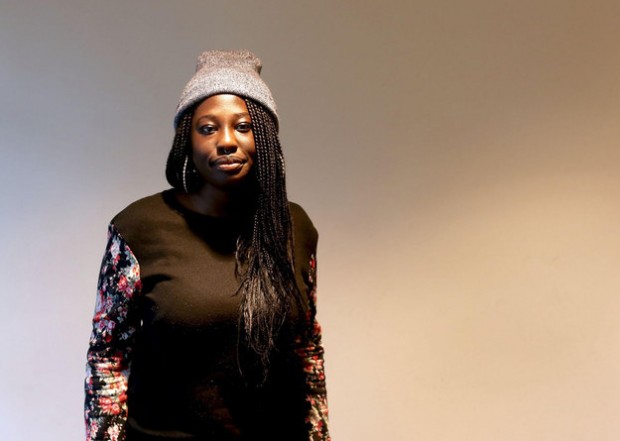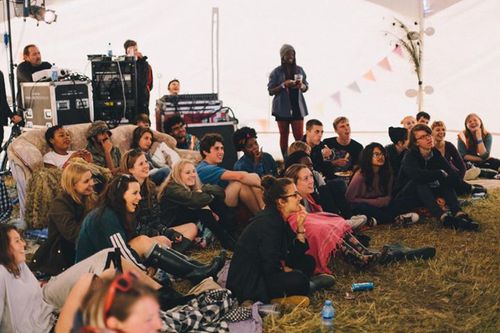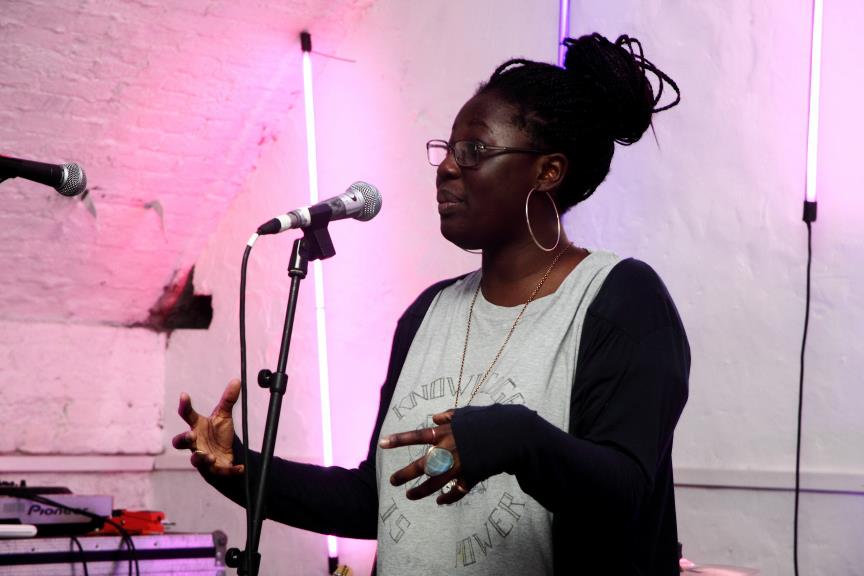ROSANNA ELLUL asks Eye Want Change judge Bridget Minamore about finding poetic and political independence.
Spoken word has always existed in a political realm. This is becoming increasingly necessary, as centralised and insidious attacks on artistic networks throughout the country continue and poetic movements have to adapt to these constrictions. I spoke with Bridget Minamore, a former UCL student and Barbican Young Poet Laureate finalist, about the transition of poetry into more personal spaces. Her trajectory as an artist suggests that although it may seem paradoxical, a break from the blatantly political can be a constructive way of facing and adapting to the growing pressures of the city on its artists.
No one person is a representation of the whole. Yet, perhaps because of the scene’s emphasis on collective, spoken word is often lazily typified by some of its loudest voices, which in the past have included John Cooper Clark, Kate Tempest, or Polar Bear. Bridget Minamore is keen to discredit such a homogenous interpretation of a clearly multifarious and diverse scene. Having used her poetic skill to bring in extra money at university, after UCL Minamore joined the artistic team behind Brainchild festival and was also shortlisted for Young Poet Laureate. In fact, her unashamed fluidity of style, moving from political performance pieces to quieter and more tender written poems, is a more emblematic reflection of the current spoken word scene – which, as embodied by its newer members in particular, is not solely characterised by across-the-board polemical activism.

Nonetheless, the connection between spoken word and the political remains fundamental. Political angst characterises the work of spoken word poets from Tim Wells to Anthony Anaxagorou. Indeed, many of Minamore’s past projects have been rooted in activism connected with political organisations such as Operation Black Vote (OBV) and My Body Back (MBB). Her deep attachments with these organisations – both political and personal – are evident throughout her more assertive poetry, but she also stresses that sometimes ‘saying no’ to these kinds of gigs can be liberating. She explains, ‘for International Women’s Day I was repeatedly asked about writing poems on the rise of FGM’. Unlike OBV or MBB, Bridget found herself questioning why she was asked to write about this topic. At what point does your own or your scene’s political nature validate your right to be a speaker for issues you may not wholly understand? For Minamore, saying no to what she sees as sometimes ‘being an imposter’ is not merely opting out, but is essential to the integrity of her poetic voice. She does not want to totally reject activism, but advocates a more personal, discerning engagement with political causes.
In a refreshingly candid way, Minamore divulges, ‘I got politicised out…I spent the last year writing about love’. She maps her shrinking from this wholly political space by telling me that years of writing about politics became like ‘growing a plant that you have to keep digging and digging, keeping it level and stagnant’. She compared this to exploring new poetic paths and writing about family, where she felt she had found a plant that refused to stop growing, that she could pluck at any time for her writing. In her performance she is aware it is difficult to giving these more private ‘love’ poems the same fiery execution that comes naturally to poems of dissidence. This transition, however, has opened up pathways for truth in her writing: while she admires the potency of anger in performance, it leads to uncompromising and unyielding statements. She states, ‘It’s very easy with political poems to feel like your stating a fact’, but ‘there are no facts within human drama’. Instead of mapping out the widespread effects of budget cuts or gentrification, her poetry looks inside itself to see her own individual position in relation to these issues and as a result has become more honest. Like the flourishing plant, her poetry grows and becomes its own being; it is this truthful, original style that will keep her writing and adding to the spoken word culture in London.

Minamore’s transition to a more personal poetic style has had the effect of exposing certain failings of the inclusive, communal language of the spoken word scene. Over the course of our conversation, the issue of class kept cropping up. The labelling of inclusivity often means we ignore a deeper elitism and middle-class fetishisation of ‘working class struggle’ within the poetry nexus. As a working class poet herself, Minamore remembers many ‘tiny barriers’ and examples of ‘assumed knowledge’ and tells me she still hasn’t plucked up the courage to finish her arts funding application. To tackle the often insular elitism and privilege within various artistic scenes in London, Bridget calls for the working class to demand their own entitlement instead of fearing it, which can be aided and validated by the nurturing of an artist’s particular voice.
A decision to ‘say no’ to political collaborations or poetry nights may be empowered, but it is undeniably laden with complexities. It seems natural that artists share space, voice, and style, as surviving in London is ‘pretty much impossible’ on their own. Minamore hopes that there will be a breaking point where the problems of space and sustainability in the arts become too pressing to ignore; in the meantime, political kickbacks are keenly felt. She can only, practically, accept paid work, yet rejecting unpaid yet important gigs can feel counteractive to the wider aims of a young scene. The artist can feel trapped, mediating between an ambition for artistic integrity and the necessity to find paid work to survive in the city.

Letting your own style flourish and grow is undeniably problematized by such constraints. Aside from ‘abolishing the class system’, Minamore notes the importance of the proliferation of social media and independent projects such as Brainchild or Barbican or Roundhouse Young Poets in tackling these problems. She sees these kinds of collectives as vital, as they help people create art with only the resources they have to hand, reducing the need for government supplements and legitimising growing artistry.
Ideas of community and collective are as crucial as ever for performance poetry, but Minamore’s poetic growth demonstrates the importance of trying to find your own voice within these smaller or larger structures – a voice that makes room for independent and abstract political thought. Only when an artist engages in introspection can they be entitled to their own space. By embracing this new ambiguous poetic paradigm Minamore says she ‘has realised what she can’t be’ – and acknowledging difference can be a central part of working together and sustaining the diverse life of spoken word. Minamore is searching for her individuality in a scene perhaps constrictingly characterised by its communitas: an individualism that erodes false figurations of equality and ultimately reaches outwards.
To view and vote for Eye Want Change’s 2016 smartphone film submissions click here.

